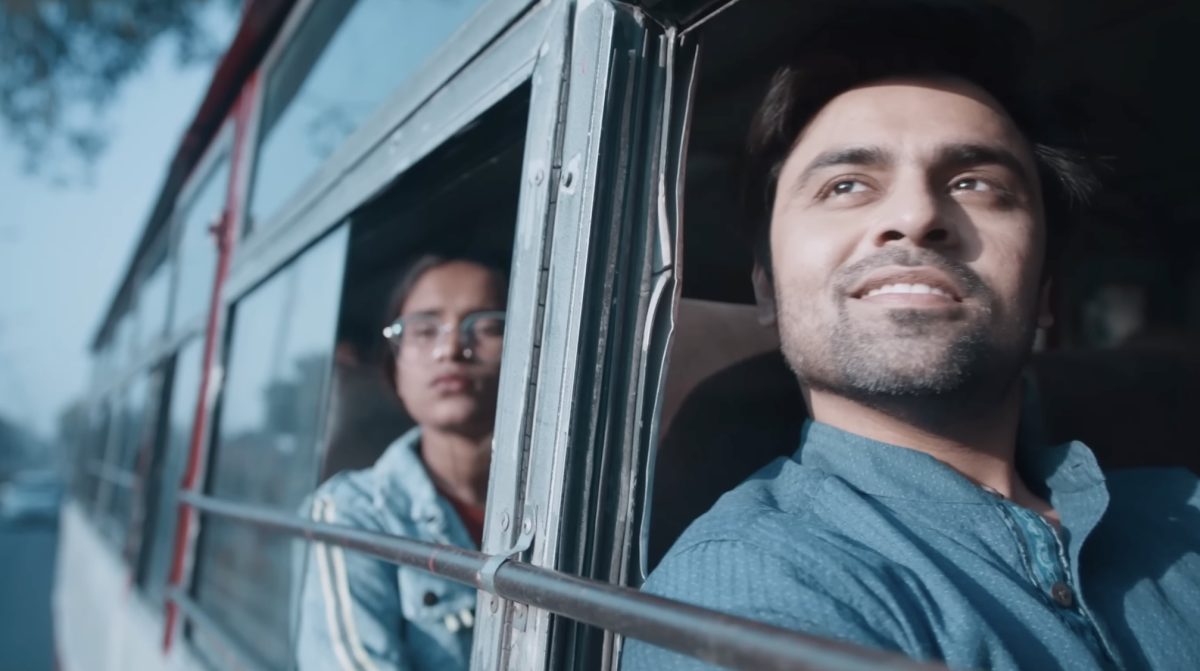There is something titillating and compelling about watching true crime thrillers—whether it’s documentary, faux-documentary, or fictional narratives based on those true events. The perspective usually stems from the source itself—the shock and awe of realizing that something so horrific could stem from one’s perception of reality, where the true griminess of the underbelly or the Kafkaesque frustration within the halls of bureaucracy stands to be revealed.
The long preamble aside, “Bhagwat Chapter One: Raakshas” (2025, one unwieldy long title teasing a continuation) is the latest in a long line of true crime that streaming services usually employ to ensure watch times get computed and increased, as butts on seats are guaranteed due to the intriguing premise. What makes this homegrown Indian true crime content intriguing is what made streaming movies and television also enticing—a bigger canvas for actors not popular in the mainstream to showcase their versatility, and new actors to gain a similar canvas and achieve a new form of popularity.
The problem is that all these are the ideas that stem from the inception of a project. When a film becomes a project, numerous attributes come into the picture and essentially interrupt a basic storytelling flow.
Considering the rapid-changing and rapid proliferation of technology within the moviemaking and movie-watching landscape, it stands to reason that a story about a fictional prostitution ring, an angry, world-weary, traumatized rebellious cop (whose name is the eponymous title of the film) with a chip on the shoulder, and an antagonist whose relatability is the mask utilized to lure innocent young women to their deaths could lose the potency in normal fictitious narrative structuring. That’s not even taking into account the potency of the actual horrific true event or multiple true events that inspire this fictitious narrative.
There are pleasures to be had, and this is despite my world-weary resignation of films that could charitably be described as “content.” Arshad Warsi, as the eponymous Vishwas Bhagwat, essays the role of a police officer, which can remind one of the underrated and underseen film “Sehar” (2005). At the very least, Warsi, fresh off a comedic turn in “Jolly LLB 3,” has the canvas to remind audiences of the range and versatility he possesses as an actor, managing to portray his dramatic chops when the silence and the lack of dialogue within a scene allow him that space.
The secondary pleasure is marketed, but the actual pleasure of the film in terms of the intrigue is watching Jitendra Kumar effectively utilize that similar everyday charm to nefarious ends. It’s in these sequences where the insidiousness that the film wishes to convey is at its most effective. From the beginning, where we witness the innocent flirting Sameer does with Meera, to the unfurling of a traditional love story within UP (with its very visible warts), to the turn, where we witness the “demon.”
The clever bit within the film is how subtly Kumar changes the usual shticks that fans are familiar with. He is utilizing that relatability afforded to a Jeetu Bhaiyaa of “Kota Factory” and Abhishek in “Panchayat,” and just shifts the gear a tad. Now that relatability changes to creepiness, that welcoming smile hides a reserved yet terrifying misogynistic anger within.

Also Read: 50 Best Hindi Films of the 21st Century
Credit should be afforded to screenwriters Bhavini Bheda and Sumit Saxena for not providing key flashback sequences to empathize with the antagonist. Unlike the previous year’s “Sector 36,” where the flashback sequence actually derailed the potency of the antagonist and took away from the terrifying Vikrant Massey performance, the lack of such made the subtle treatment of Kumar’s Sameer uneasy to watch.
It also allowed for the plot to dovetail into a courtroom drama that, in spite of its predictability, did manage to mine out interesting performance ticks from Kumar. It also helps that the cinematography by Amogh Deshpande, filled with yellowish hues clouding the darkness, or the grain actually highlighting a griminess within the polish of the softly lit frames, does provide a distinctive look to the film.
The problem—a major fault line—lies not solely with the script but with the intention of the filmmaking itself, especially in terms of its editing. At this point, it is becoming far too easy to decode what an “OTT film” is. The editing is choppier to reduce the time between scenes, which already hampers the organic flow of a tale. But the unforgivable crime that such reverse-engineered “OTT films” are complicit in is simplifying and explaining events of a previous scene via one of the characters within the next scene itself.
It effectively makes the film far better as a “second-screen” watch, but it stands out like a sore thumb. It especially stands out when the lead performance by Warsi is wasted as a result of being saddled with lines such as “Do you know what you are? A ”Demon”—doubling as a sloppy title drop and a sloppier explanation to catch up the blissfully unaware reel-scrolling audience, such that it is easy to follow.
It’s a shame, because the editing and these overly simplified dialogues rob scenes of nuance or weight, thus depicting Warsi’s good cop to be the epitome of the world-weary, good-hearted cop archetype without providing him the space to deliver any texture. The film itself contains a fallacy that renders it generic, even though the plot mechanics theoretically provide it with texture.
There is less time to breathe between scenes, and because the film is trying to be a realistic take on a police procedural, it mistakenly robs those procedural investigative moments of any thrills or tension. As a result, scenes of investigations and doubts clouding Bhagwat all occur one after the other without carrying any sort of urgency or emotional weight. The only moments of respite come from Jitendra Kumar’s performance, which only works if you are aware of it being against type. Even then, the film never gives him the space to be fully unhinged or provides him a scene-stealing canvas.
“Bhagwat Chapter One: Rakshas” almost feels like a true-crime procedural for dummies, provided with just a sprinkle of commercial garnish to be palatable without taking away the visceral attributes that attract these films. It’s debatable how effective it is in fulfilling its intentions, but it does elicit a sense of disappointment within me as a result of being a missed opportunity. There is hard-hitting material here, hiding beneath the folds of compromises in the blanket of streaming film, or “content.”





![Hanging Gardens (Janain Mualaqa) [2022] ‘Venice’ Review: Children Learning The True Meaning Of Exploitation And Commercialization](https://79468c92.delivery.rocketcdn.me/wp-content/uploads/2022/09/Hanging-Gardens-2022-Review-768x576.jpeg)


![Nayattu [2021] Netflix Review: A Taut Thriller of Contradictory Politics](https://79468c92.delivery.rocketcdn.me/wp-content/uploads/2021/05/Nayattu-768x576.jpg)
